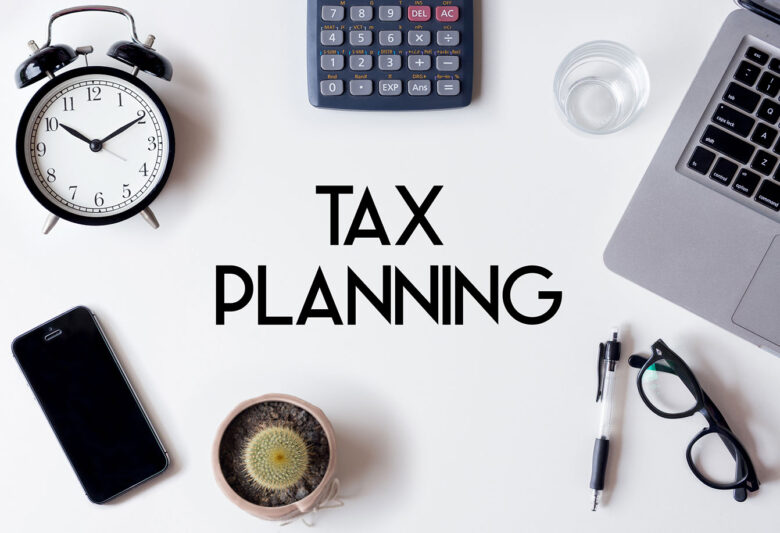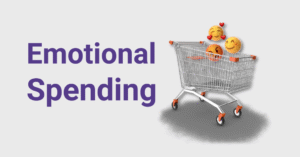Nearly everyone recognizes the importance of filing taxes, yet many people put it off until the final days before the deadline. Despite the potential financial consequences, postponing tax returns can be unexpected. Understanding the psychological reasons behind this behavior can help individuals and businesses make better financial decisions and learn from the stress of tax season. This article explores the underlying emotional reasons for tax procrastination and offers solutions. We aim to combine behavioral insights with financial support to create a proactive and enjoyable tax planning framework. Understanding the “why” behind procrastination can transform the way you, as a freelancer, business owner, or employee, manage your money and time. Let’s explore why procrastination arises and how you can overcome it to achieve financial success.
Understanding the Causes of Tax Delay
Psychology suggests that procrastination is a form of emotional regulation, not laziness. Tax returns are often associated with worry, complexity, and anxiety. Procrastination is an emotional response to avoid discomfort. Avoidance helps the brain cope with the pain of tax returns. People often resort to procrastination after a bad audit, fines, or unclear forms. When the emotional pressure outweighs the reward, the task becomes less of a priority. Tasks without immediate reward are more likely to be postponed, while the future benefits of tax planning (such as a tax refund or reduced liabilities) can reduce people’s willingness to take immediate action.
Present Bias Influences Financial Decision-Making
A serious psychological bias, known as “present bias,” can lead to neglecting tax planning. Present bias means we prioritize short-term gains over long-term ones. People would rather watch TV or use social media than put in the effort and wait required for tax planning. This tendency distorts time and consequences, creating the illusion that tax planning can always wait until later. Unfortunately, “later” is often the last available opportunity, increasing the risk of costly mistakes and missed deductions. Understanding present bias can help us understand the mental stress that influences financial decision-making and develop healthy planning practices.
Cognitive Load and Emotional Avoidance in Tax Behavior
Just contemplating tax data, numbers, and legal jargon is enough to overwhelm many people. Cognitive load can prevent people from taking action. When people worry about having to pay more tax than planned, they emotionally avoid it. Many people struggle to overcome the psychological barriers created by excessive cognitive pressure and emotional stress. Such stress leads to them postponing receipts, calculating expenses, and learning new tax rules. Changes in tax regulations can increase uncertainty and the fear of making mistakes. Simplified systems or professional help can reduce cognitive load and overcome this challenge.
Financial Self-Empowerment in Tax Planning
Financial self-empowerment is confidence in financial management. People with low financial self-empowerment may postpone their tax tasks out of doubt about their ability to do so. A lack of self-confidence can lead to negligence, haste, or filing incorrect returns. People with high levels of self-empowerment, on the other hand, are proactive, seek knowledge, and plan. Education, small successes (like filing tax forms), and helpful tools that simplify the process can boost self-confidence. Empowered individuals plan their taxes earlier and more carefully.
Social Influences on Taxes
Tax planning is not a solitary endeavor. Community norms and peer behavior influence individual behavior. If family or friends unknowingly delay their tax obligations, individuals are more likely to do so unknowingly. Publicly joking about last-minute filing can also normalize procrastination. The lack of open dialogue about taxes in many cultures reinforces a sense of mystery and fear. Communities and influential individuals should openly discuss tax planning, encourage preparation, and share positive experiences to change their perception. Modeling responsible behavior can encourage others to follow suit.
Overcoming Procrastination in Tax Planning
Understanding the psychology of tax procrastination is crucial, but change requires action. Micro-deadlines—breaking the tax process into smaller steps with fixed deadlines—can reduce stress. Building habits, integrating tax planning with habits like Sunday financial statements, can improve consistency. Automated reminders or digital tools can reduce administrative burdens and keep projects on track. Rewarding yourself after each tax milestone can help balance emotions. Instead of rushing during tax season, seeking professional advice early in the year can lead to peace of mind and better results. These approaches make tax planning effortless and enjoyable.
Proactive Tax Planning Improves Mental Well-being
Proactive tax planning can improve financial well-being and reduce stress. By tackling tax tasks gradually and methodically, they become more manageable, reducing the stress of tax season. By preparing your finances in advance, you can take advantage of deductions, tax breaks, and tax-saving investments you might have overlooked during a rushed filing process. This gives you time to address issues and obtain the necessary documents. Preparation enhances psychological satisfaction, incentivizes early action, and establishes the groundwork for enduring healthier financial practices.
The Future of Tax Planning
As technology advances, new behavioral tax planning solutions are emerging. Examples include games that make the tax process more engaging, AI-driven systems that provide personalized assistance with filing, and platforms that simplify it. Behavioral economists and fintech companies are collaborating to develop tools that support human tendencies. Reminders based on calendar events or rewards for completing tasks early show promise. As these technologies become more widespread, they will help tax planners turn knowledge into action.
Conclusion
Tax planning doesn’t have to be stressful. We can adapt our approach by understanding the psychological barriers that lead to procrastination, such as emotional avoidance, bias, and low self-esteem. It’s crucial to reframe our perspective and establish support systems that encourage consistent, gradual progress throughout the year. Leveraging technology, social support, or self-reflection to get your tax habits under control can yield long-term financial and emotional benefits. The goal is continuous improvement, not perfection. When people feel knowledgeable, informed, and empowered, tax planning becomes a confident financial practice. Instead of letting taxes become a burden, you can use them to achieve financial prosperity and peace of mind.
FAQs
1. Why do most people procrastinate?
Most people procrastinate due to emotional distress, fear of making mistakes, and the complexity of taxes. This can lead people to avoid filing taxes, even when it’s reasonable to start soon.
2. How can you avoid tax procrastination?
You can overcome procrastination by breaking tasks into smaller chunks, setting short deadlines, using electronic reminders, and rewarding those who complete them. Start small and finish them early.
3. What are the risks of filing your tax return at the last minute?
Filing at the last minute increases the risk of errors, missed deductions, and penalties. You also don’t have time to consider all the options, correct mistakes, and obtain the necessary documents.
4. Can a tax advisor reduce stress?
Working with a tax advisor can reduce stress. They can streamline the process, ensure accuracy, and provide peace of mind by optimizing tax savings and compliance.
5. Can psychology help me with my tax return?
Of course it can. Understanding the psychological causes of procrastination can help you develop behaviors that benefit your brain. Behavioral techniques can improve financial behavior in the long run.




